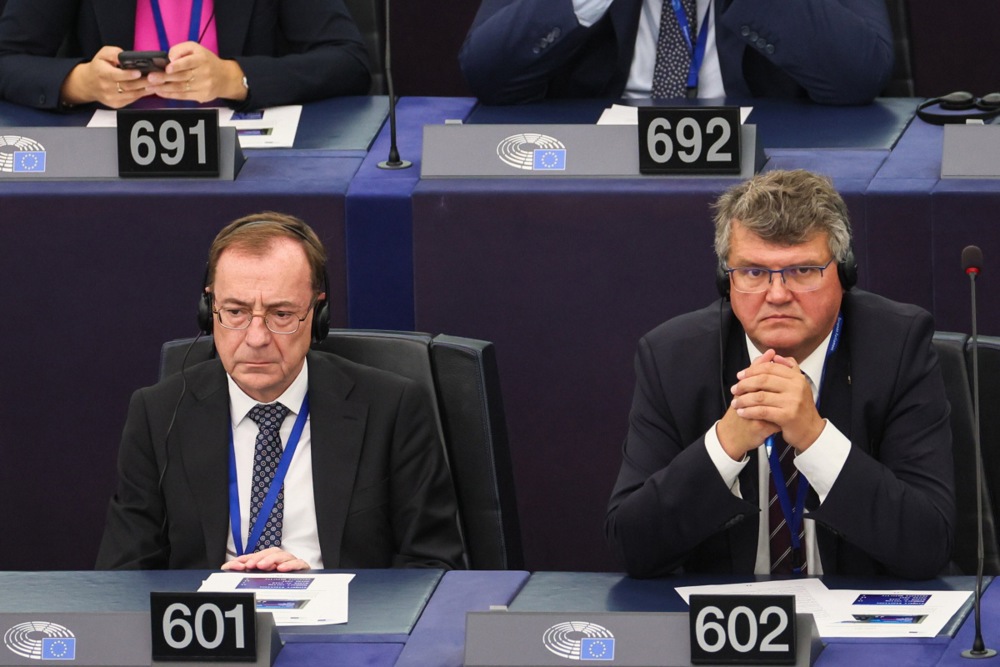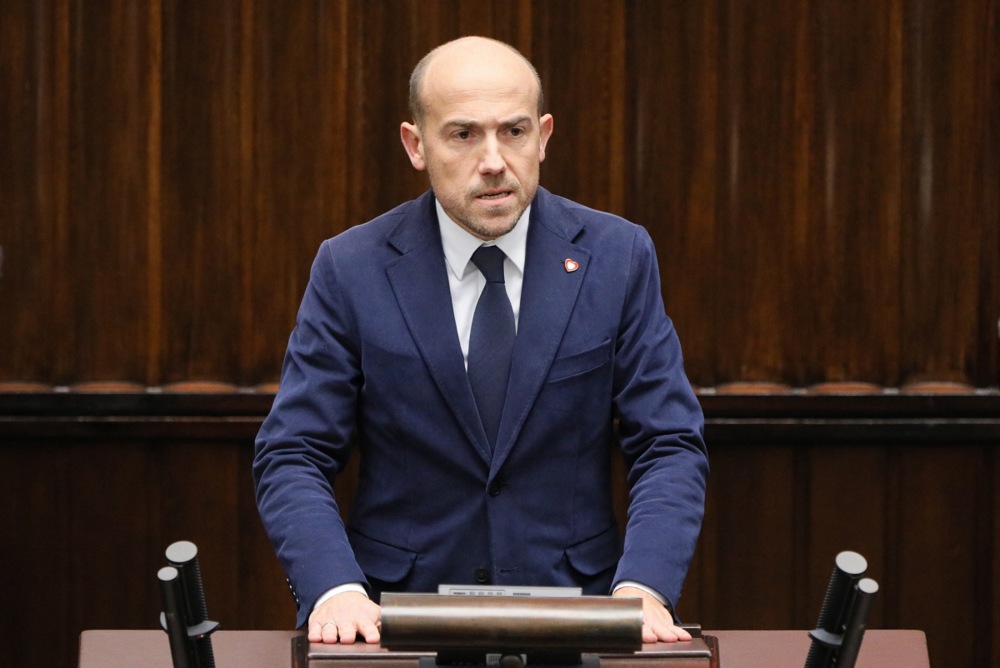Adam Bodnar, Poland’s justice minister, has come under fire from the opposition Conservatives (PiS) and the legal think tank Ordo Iuris.
They have accused the minister of attempting to remove judges that the government disapproves of from a hearing to decide whether an opposition MP and former justice deputy minister will be detained.
PiS deputy Marcin Romanowski has been charged with authorising the illegal use of the Justice Fund, which was set up originally to help victims of crime, to pay for political campaigns.
Parliament lifted his immunity in June and he was arrested despite the fact that he had offered to testify voluntarily.
In what has been seen as a major embarrassment to the Donald Tusk-led government, a Warsaw court decided to release Romanowski, saying prosecutors had failed to take account of the fact that, as a member of the Parliamentary Assembly of the Council of Europe (PACE), Romanowski was also protected by that body’s parliamentary immunity.

Prosecutors have appealed against the court’s decision and in addition challenged the presence of judges appointed by Polish President Andrzej Duda, a PiS ally, on recommendation of the National Judicial Council (KRS), a body whose members were elected during the lifetime of the previous PiS government.
On August 21, Justice Krzysztof Chmielewski, who is chairing the bench for Romanowski’s case, removed two judges the prosecutors wanted to see eliminated from the hearing on the grounds that both had been approved by the KRS.
Attorney Bartosz Lewandowski, who represents Romanowski and works with Ordo Iuris, said he had been outraged at the way his client’s case had been handled.
“I have never heard of such a case in the history of the Polish legal system. One judge decrees that another, who has been allotted the case in line with the requirement that such decisions are taken by a random draw, will be taken off the bench,” he stated.
In a parallel development, the head of Warsaw’s court of appeal Dorota Markiewicz, a Bodnar nominee, on August 8 decided to take action against judges appointed by Duda by denying them the right to hear new appeal cases.
The previous incumbent, Piotr Schab, claimed that Bodnar’s decision was “completely unlawful”and condemned the decision to sideline him and other judges. He called Markiewicz “a person usurping the authority of head of this court”, adding that it was “reactivating the post-Stalinist system, giving vile people joyful impunity and restoring domination over the helpless citizen, for whom the courts were, are and unfortunately will be an enemy by foreign appointment”.
He was referring to the fact that PiS reforms of the judiciary were in part aimed at removing former Communists from the justice system and that the European Union has been accused of siding with them and their judgments.
The former Conservative (PiS) government changed the way the KRS is appointed. Previously, incumbents had been elected mostly by senior judges only. That was altered so that election of the majority of members was undertaken by Parliament.
That reform was challenged in the European Court of Justice and Poland’s Supreme Court. As a result, the present Tusk government regards the recommendations the KRS has made on judicial appointments, enacted by the President, as being illegitimate.
The dispute over the KRS has called into question the legitimacy of thousands of judges appointed on the KRS recommendations and, by implication, their verdicts.
The Tusk government has proposed legislation to reform the KRS so that it is elected by judges and not Parliament. It refused Duda’s proposal that the legitimacy of judges he had appointed should be respected. As a result Duda has referred the legislation to the constitutional court, another court whose legitimacy is refuted by the ruling majority.





